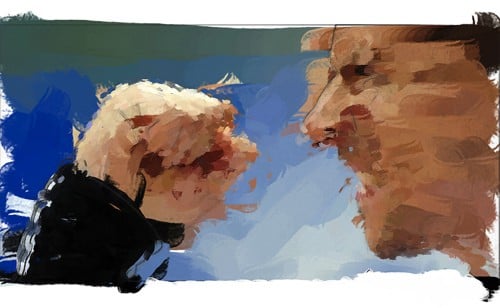Last Sunday, Ross Douthat wondered: Can Liberal Christianity Be Saved? The “collapse” of “liberal Christianity,” according to him, can be seen in the 23 percent decline in weekly Episcopal Church attendance between 2000 and 2010 – a decade where the stateside denomination grew progressively more progressive. Referring to congregations of Catholic women religious, Douthat remarks that “the most progressive-minded religious orders have often failed to generate the vocations necessary to sustain themselves.” Should liberal Christianity continue in this way, it “will change, and change, and die.”
The issues Douthat notes should not be blithely dismissed. They merit more serious discussion than is likely to be achieved in either a Sunday op-ed or a TJP post. Yes, there may be problems with his argument (Isn’t “conservative” Christianity also in decline? What counts as ‘liberal’? Etcetera.), but the larger issues remain. For the brave of heart, a Google search will take you as far down this fox hole as you wish to go.
I’m going to leave the in-depth commentary to the rest of the blogosphere. What I question is the utility of describing the church (or the country, or, well, much of anything except politicians) via a liberal/conservative spectrum. While Douthat’s piece doesn’t overtly pit church “liberals” and “conservatives” against one another, I worry that the uncritical acceptance of the liberal/conservative labels can reinforce what I call the “If Only Syndrome”–a feature of articles, conversations, and interior monologues around the world. It goes something like this:
 If only those people would think more like I think, then we’d be better off. If only the church would become more conservative (or more liberal), attendance and vocations would skyrocket. People would pick up dangerous snakes and heal the sick at our doors! If only our government would become more liberal (or more conservative); if only everybody agreed with a certain set of political views (read: mine), then domestic tranquility and world peace would surely be at hand.
If only those people would think more like I think, then we’d be better off. If only the church would become more conservative (or more liberal), attendance and vocations would skyrocket. People would pick up dangerous snakes and heal the sick at our doors! If only our government would become more liberal (or more conservative); if only everybody agreed with a certain set of political views (read: mine), then domestic tranquility and world peace would surely be at hand.
If only everyone else would get out of the way.
Sound familiar? It is an attractive line of thought, because we come out looking competent, wise, and insightful. But the trouble with “if only” is that it paints the members of our own communities as the problem to be solved (Those liberal nuns! Those conservative priests! Those Republicans! Those Democrats!). This pits us against the very people with whom we must seek a new way forward. Often enough, “if only” is played as a zero-sum game, the upshot being that “they” must either agree with me or get out.
Throughout history, however, some rather insightful people (Jesus Christ, Abraham Lincoln) have warned us that these types of divisions cannot long endure.
If only we would stop trying to prove them right.


